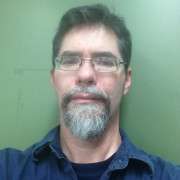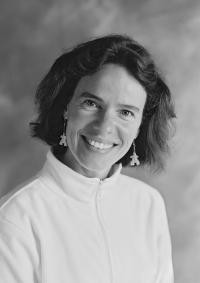Rebecca Tyson Ph.D
Associate Professor
University of British Columbia Okanagan
My research is in Mathematical Ecology, particularly in biological invasions and dispersal. I am interested in understanding the distribution and persistence of organisms in the landscape, from the point of view of conserving species at risk, or managing wanted or unwanted biological invasions. My tools are mathematical models expressed as differential equations (partial or ordinary) and/or agent-based simulations. In my work, I focus particularly on problems in agriculture and forestry (e.g. movement of transgenic pollen, evaluating control strategies for the mountain pine beetle), and on population cycles (e.g. effect of seasonality and climate change on predator-prey cycles).
As a modeller with experience in developing and analysing mathematical models for insect dispersal and population dynamics in general, I have skills that will complement and augment the modelling skills present in TRIA-Net. In particular, my past work includes modelling MPB dispersal and population dynamics coupled with management efforts, so I am familiar with the challenges posed by the MPB and have a unique perspective on possibilities for future management. In addition, I am located at UBC in Kelowna, and can thus provide training support in mathematical modelling to HQP located at UBC (https://people.ok.ubc.ca/rtyson/) in Kelowna.
 Scott Heckbert Ph.D
Scott Heckbert Ph.D
Environmental Economist
Alberta Innovates – Technology Futures
Scott Heckbert is an environmental economist at Alberta Innovates Technology Futures, Canada (http://www.albertatechfutures.ca/Corporate/ScottHeckbertbio.aspx). Scott’s research applies environmental economics using simulation modelling of social-ecological systems. Research topics include ecosystem services assessments, economics of greenhouse gas mitigation, design of market-based instruments for environmental management, modelling the rise and fall of ancient societies, and simulating water quality and biodiversity under land use change. Scott develops spatially-explicit simulation models using agent-based models, cellular automata and network models of people and the environment.
 Barry Cooke Ph.D
Barry Cooke Ph.D
Research Scientist, Spatial Dynamics of Insect Populations
Natural Resources Canada – Canadian Forest Service
Research Areas:
-Modeling insect outbreak processes and patterns
-Pest management decision support modeling
-Comparative dynamics of boreal forest insects
-Risk analysis
-Field validation of model predictions
-Quantitative analysis
-Forest insect disturbance ecology and links to ecosystem function
(http://cfs.nrcan.gc.ca/employees/read/bcooke)
Education:
B.Sc.F. (Forestry), U Toronto, Toronto, ON 1991
M.Sc. (Entomology), U Laval, Québec, QC, 1995
Ph.D. (Ecology), U Alberta, Edmonton, AB, 2001
 Louis Bernier Ph.D
Louis Bernier Ph.D
Professor
Universite Laval
Louis is a full professor of forest pathology and fungal genetics at Université Laval. Research carried out in his group focuses on the study of tree pathogenic fungi and fungal saprobes of wood and wood products. They use a variety of experimental approaches from the fields of phytopathology, molecular biology and genomics. Over the years, members of his group have been investigating 1) microorganisms associated with poorly documented diseases; 2) population structure and dynamics of selected pathogens; and 3) genes contributing to pathogenicity and fitness.
He began working on ophiostomatoid fungi during my graduate studies at the University of Toronto. Upon joining U. Laval as an assistant professor in 1990, he developed a NSERC-funded research program on the biology of Ophiostoma novo-ulmi, the highly aggressive agent of Dutch elm disease. As a Collaborator to the Tria Network, he is academic supervisor of Anna DiCarlo who is studying the biology of Grosmannia clavigera in Philippe Tanguay’s laboratory.
Awards
2002 Gordon J. Green Outstanding Young Scientist Award, Canadian Phytopathological Society
2008 Hommage René-Pomerleau, Quebec Society for the Protection of Plants





